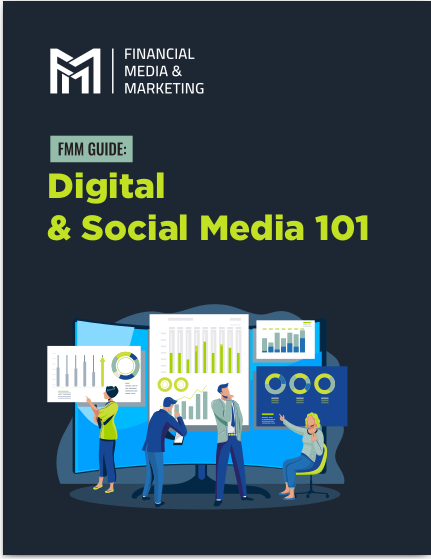Key Takeaways:
-
Building trust and credibility with clients is essential for long-term success as a financial advisor.
-
Establishing a reputation for reliability helps you attract new leads and retain loyal clients.
Trust: The Foundation of Professional Relationships
In today’s competitive market, trust is more than a buzzword—it’s the bedrock of every successful client relationship. Without trust, even the most impressive credentials won’t secure a loyal client base. Clients are looking for professionals who not only deliver results but also prioritize their best interests.
Why Trust Matters in Financial Advising
Financial advising revolves around sensitive, life-impacting decisions. Clients need to feel confident that you’ll act in their best interest, even when challenges arise. Trust ensures that clients share their true financial concerns, giving you the insights needed to offer effective solutions.
Building Trust from the First Interaction
Your initial interaction with a potential client sets the tone for the relationship. Demonstrate integrity by being upfront about your services, fees, and the value you provide. Transparency fosters trust and sets realistic expectations, avoiding misunderstandings later.
Credibility: Proving Your Value Through Expertise
While trust forms the emotional foundation of relationships, credibility solidifies your position as a go-to professional. Clients want assurance that their financial future is in capable hands, and credibility provides that.
Establishing Credibility with Expertise
Position yourself as an expert by staying updated on industry trends, market shifts, and regulatory changes. Sharing this knowledge—through client updates or educational resources—proves you’re equipped to guide them in an ever-changing financial landscape.
Certifications and Professional Development
Investing in certifications and advanced training demonstrates your commitment to excellence. Credentials not only boost your credibility but also show clients that you’re dedicated to continuous improvement.
The Intersection of Trust and Credibility
Trust and credibility are not isolated concepts; they work together to create a lasting professional reputation. A trustworthy advisor who lacks credibility might struggle to close deals, while a highly credible advisor who doesn’t inspire trust may lose clients over time.
The Balancing Act
Balancing trust and credibility requires a mix of emotional intelligence and technical knowledge. Listen actively to understand your client’s concerns while backing your advice with well-researched data. This combination reinforces your value as both empathetic and competent.
Practical Steps to Build Trust and Credibility
To excel in today’s market, adopt strategies that actively enhance both trust and credibility. Consistency in your actions is key.
Be Transparent in All Communications
Whether discussing fees, potential risks, or timelines, honesty is paramount. Clients value transparency, even when the news isn’t favorable. Delivering clear and accurate information shows that you respect their intelligence and decision-making ability.
Follow Through on Promises
Reliability is the cornerstone of trust. Always follow through on commitments, no matter how small. A missed deadline or unreturned call can erode trust, while consistent follow-through strengthens it.
Leverage Testimonials and Referrals
Satisfied clients can be your best advocates. Encourage them to share their experiences, either through testimonials or referrals. Hearing about your reliability and expertise from someone they trust adds weight to your reputation.
The Role of Communication in Building Relationships
Clear, consistent communication is a powerful tool for fostering trust and credibility. It’s not just about what you say, but how and when you say it.
Keep Clients Informed
Regular updates on market trends, their portfolio’s performance, or new financial strategies keep clients engaged. Proactively sharing insights shows that you’re invested in their success.
Tailor Your Approach
Adapt your communication style to suit each client’s preferences. While some may appreciate detailed reports, others might prefer a concise summary. Flexibility ensures clients feel understood and valued.
Listen Actively
Active listening demonstrates that you care about your clients’ goals and concerns. When clients feel heard, they’re more likely to trust your advice and remain loyal.
Long-Term Strategies for Sustaining Trust and Credibility
Building trust and credibility is an ongoing process. It requires consistent effort and a willingness to adapt to changing circumstances.
Maintain Ethical Standards
Adhering to a strict code of ethics reinforces your reputation as a trustworthy advisor. Avoid conflicts of interest and always prioritize your clients’ well-being over short-term gains.
Embrace Feedback
Encourage clients to share their feedback, whether positive or constructive. Use this input to improve your services and address any areas of concern. This openness not only strengthens relationships but also helps you refine your practice.
Stay Consistent
Consistency in your actions, advice, and communication builds confidence. Clients appreciate knowing what to expect from you, creating a sense of reliability that reinforces trust.
The Impact of Trust and Credibility on Business Growth
Trust and credibility don’t just benefit client relationships—they drive tangible business results. From attracting new leads to retaining existing clients, these qualities are integral to sustainable growth.
Boost Client Retention
Clients who trust your expertise are less likely to seek advice elsewhere. High retention rates lead to a stable client base and long-term profitability.
Generate More Referrals
Satisfied clients who view you as trustworthy and credible are more likely to recommend your services. This word-of-mouth marketing can significantly expand your network of potential leads.
Enhance Brand Reputation
Your personal brand is a reflection of your trustworthiness and credibility. A strong reputation attracts high-quality clients and positions you as a leader in your field.
Adapting to Evolving Client Expectations
Client expectations are constantly evolving. Staying ahead requires a proactive approach to maintaining trust and credibility in a dynamic market.
Leverage Technology
Use tools like customer relationship management (CRM) systems to track client interactions and provide personalized services. Technology enhances your ability to deliver timely, accurate information.
Address Emerging Concerns
Stay informed about new challenges facing your clients, such as economic shifts or regulatory changes. Offering timely solutions to these concerns reinforces your value as a trusted advisor.
Focus on Empathy
Clients value advisors who genuinely understand their needs and aspirations. Empathy bridges the gap between professional expertise and personal connection, fostering deeper trust.
Strengthening Relationships in a Competitive Market
In a crowded marketplace, standing out requires more than technical skills. Trust and credibility set you apart, ensuring clients choose you over competitors.
Develop a Unique Value Proposition
Highlight what makes your services unique. Whether it’s a specialized focus or an innovative approach, your value proposition should resonate with clients and reflect your credibility.
Build a Professional Network
Collaborating with other professionals, such as accountants or attorneys, strengthens your reputation. These partnerships expand your expertise and demonstrate your commitment to comprehensive client support.
Invest in Personal Branding
A strong personal brand showcases your trustworthiness and expertise. Use online platforms to share insights, engage with your audience, and build a positive reputation.
Why Trust and Credibility Are Your Most Valuable Assets
In today’s fast-paced market, trust and credibility are more than just ideals—they’re strategic advantages. By focusing on these qualities, you’ll not only secure loyal clients but also position yourself for long-term success in the financial advising industry.










